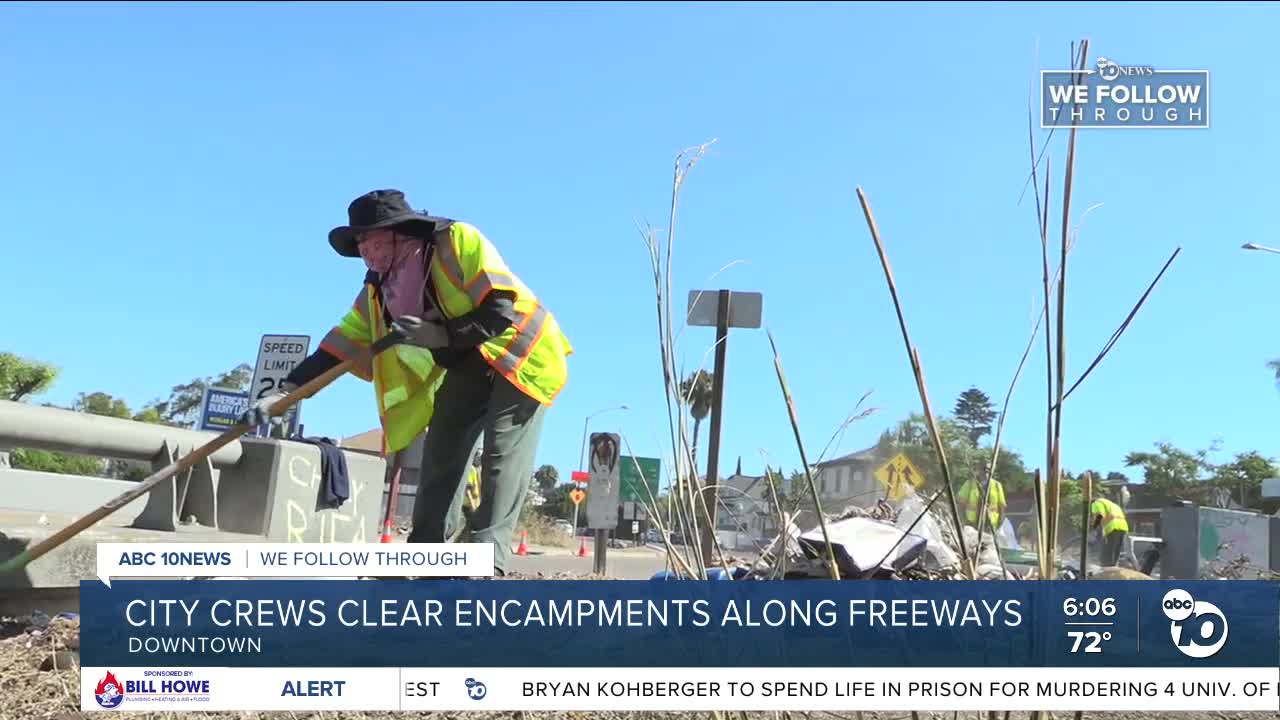SAN DIEGO (KGTV) — For the first time, San Diego city crews cleared homeless encampments near downtown freeways on Wednesday under a new agreement with Caltrans, removing five tons of trash and debris from areas that have long been difficult to maintain.
The cleanup targeted makeshift shelters—some as basic as cardboard boxes held up by wooden planks just feet above Interstate 5—where dozens of people without homes have been living.
"You find feces, tons of human waste all over the place, drugs and drug paraphernalia," said Franklin Coopersmith with San Diego Environmental Services.
Most of the dirt patches around off-ramps and overpasses are owned by Caltrans, which required months of negotiations before the city could take on cleanup responsibilities.
"This is the first agreement of this kind where we're able to do this. We want to replicate and show that a local process can drive results," Coopersmith said.
I followed along as crews raked up needles, glass, and trash. Coopersmith explained that people living in these areas received 48-hour notices and were offered shelter options before being told to leave.
Many, however, do not accept these offers. One woman I spoke to on Tuesday said she planned to relocate away from downtown.
"I probably will go more out of downtown areas for that reason alone," she said.
While some move on, others choose to stay. I watched as people brought their tents back to a dirt lot in Sherman Heights immediately after city crews drove away.
Caltrans data shows their crews had to clear the same encampments repeatedly, returning to some areas nine or 12 times in the same year.
When asked if people would simply move to new locations, Coopersmith acknowledged the challenge but expressed optimism about the city's approach.
"They will, and that's part of relationship building. Our outreach can follow wherever they are as long as they're in this five-mile area," Coopersmith said.
While Caltrans was visiting these encampments monthly, the city plans to send outreach teams weekly. Coopersmith hopes this increased interaction will build trust and encourage people to accept services.





